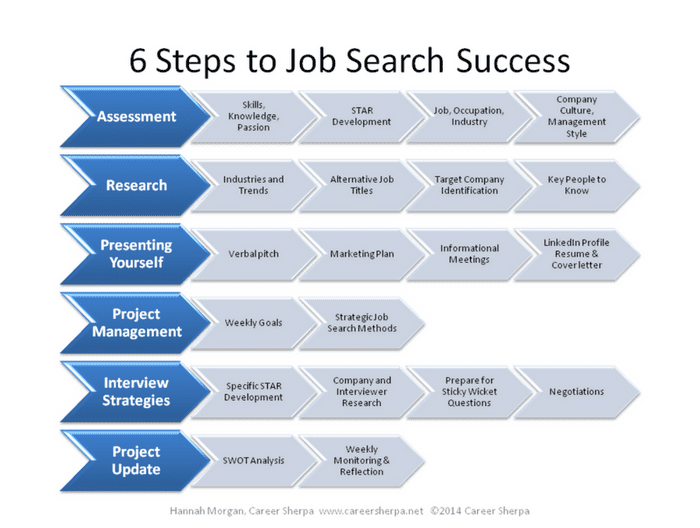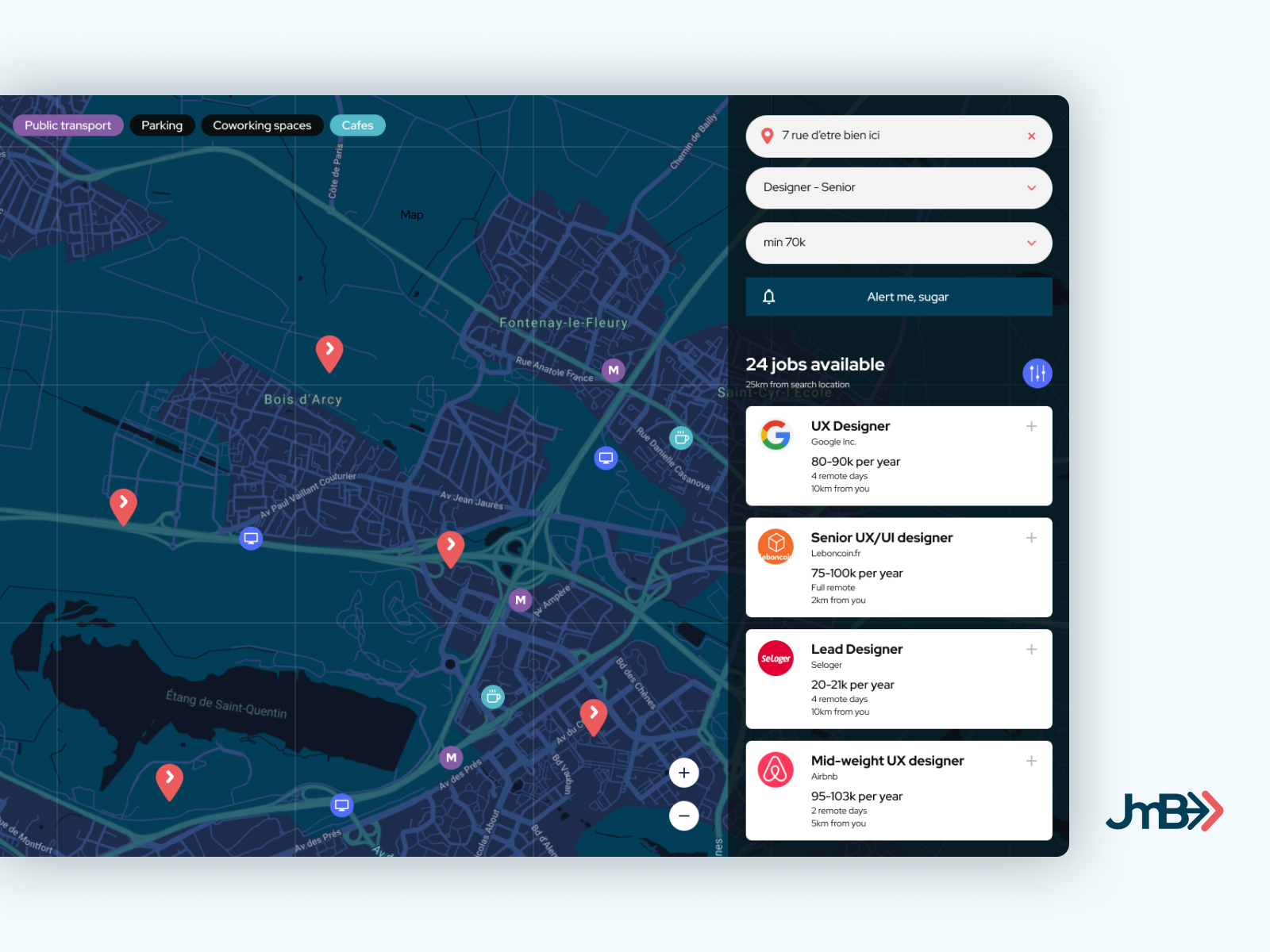Navigating the Job Market: How Location-Based Job Search Tools Can Enhance Your Career Trajectory
Related Articles: Navigating the Job Market: How Location-Based Job Search Tools Can Enhance Your Career Trajectory
Introduction
With great pleasure, we will explore the intriguing topic related to Navigating the Job Market: How Location-Based Job Search Tools Can Enhance Your Career Trajectory. Let’s weave interesting information and offer fresh perspectives to the readers.
Table of Content
Navigating the Job Market: How Location-Based Job Search Tools Can Enhance Your Career Trajectory

In the dynamic landscape of the modern job market, finding the right opportunity often involves more than just a compelling resume and a well-crafted cover letter. The geographical aspect of job searching, often overlooked, plays a crucial role in maximizing career prospects. Location-based job search tools, leveraging the power of mapping technology, have emerged as indispensable resources for job seekers, offering a unique and effective approach to navigating the employment landscape.
Understanding the Power of Location in Job Hunting
The significance of location in job searching cannot be overstated. It encompasses several key factors that directly influence career outcomes:
-
Industry Clusters: Specific industries tend to cluster in particular geographic areas. For instance, Silicon Valley is renowned for its technology companies, while Wall Street is synonymous with finance. Understanding these industry clusters allows job seekers to target their search strategically, focusing on regions where their desired roles are concentrated.
-
Cost of Living: The cost of living varies significantly across different locations. Job seekers need to consider their salary expectations in relation to the expenses associated with a particular region. Mapping tools can help analyze cost of living data, enabling informed decisions about potential relocation.
-
Commute Considerations: For many, the daily commute is a significant factor in job satisfaction. Location-based tools can help visualize commute times and traffic patterns, enabling job seekers to prioritize roles within a reasonable distance from their preferred residential area.
-
Cultural Fit: Different locations possess unique cultural nuances that can influence workplace dynamics and overall job satisfaction. Mapping tools can provide insights into the cultural landscape of various regions, helping job seekers identify areas that align with their personal preferences.
The Evolution of Location-Based Job Search Tools
Traditional job search platforms have evolved to incorporate location-based features, offering a more comprehensive and user-friendly experience. These tools empower job seekers with a range of functionalities:
-
Interactive Maps: These maps visually display job postings, allowing users to zoom in on specific areas of interest, identify nearby opportunities, and filter results based on distance, commute time, or other criteria.
-
Geolocation-Based Search: By leveraging GPS data, these tools can automatically identify job postings within a user’s current location or a defined radius. This feature streamlines the search process, presenting relevant opportunities without the need for manual location input.
-
Cost of Living Data: Many location-based tools integrate cost of living data, providing insights into housing costs, transportation expenses, and other relevant factors. This information empowers job seekers to make informed decisions about potential relocation and salary expectations.
-
Industry Cluster Mapping: Specialized tools focus on mapping industry clusters, highlighting specific areas where certain industries are concentrated. This feature is particularly valuable for job seekers seeking roles in niche fields or industries with specific geographic concentrations.
Benefits of Utilizing Location-Based Job Search Tools
Integrating location into the job search process offers several advantages:
-
Targeted Search: Location-based tools enable job seekers to focus their search on specific geographic areas, maximizing the likelihood of finding relevant opportunities.
-
Increased Efficiency: By automating the location aspect of the search, these tools save time and effort, allowing job seekers to concentrate on other aspects of their job hunting process.
-
Informed Decision-Making: Location-based tools provide access to valuable data, empowering job seekers to make informed decisions about potential relocation, salary expectations, and career trajectory.
-
Enhanced Networking: Some tools integrate networking features, connecting job seekers with professionals in their desired locations. This facilitates networking opportunities and expands career connections.
Frequently Asked Questions about Location-Based Job Search
Q: What are some popular location-based job search tools?
A: Several popular platforms offer location-based functionalities, including:
- Indeed: One of the largest job search websites, Indeed integrates location filters and maps to display job postings based on proximity.
- LinkedIn: LinkedIn, a professional networking platform, allows users to search for jobs based on location and filter results by distance.
- Glassdoor: Known for its company reviews and salary data, Glassdoor offers location-based job search capabilities, enabling users to visualize job postings on a map.
- Google Maps: Google Maps has integrated job search functionality, allowing users to find nearby job postings and filter results based on location, industry, and other criteria.
Q: How can I use location-based tools effectively?
A: To maximize the benefits of location-based tools, consider the following tips:
- Define Your Target Location: Clearly identify the geographic areas where you are willing to relocate or consider commuting.
- Utilize Location Filters: Leverage the location filters provided by the tool to refine your search and focus on opportunities within your desired radius.
- Explore Industry Clusters: Research specific industries that are prevalent in your target location.
- Analyze Cost of Living Data: Compare the cost of living in your target location to your current city or region to make informed decisions about salary expectations.
- Utilize Commute Time Estimates: Factor in commute times and traffic patterns when considering potential job opportunities.
Tips for Optimizing Your Location-Based Job Search
- Be Realistic About Commute Time: While some commute time is unavoidable, prioritize roles within a reasonable distance from your home to minimize stress and maximize work-life balance.
- Explore Remote Opportunities: Remote work has gained popularity, offering flexibility and the potential to work from anywhere. Consider incorporating remote job search into your strategy.
- Network Locally: Attend industry events, join professional organizations, and connect with individuals in your target location to expand your network and gain valuable insights.
- Research Local Market Trends: Stay informed about industry trends and job market conditions in your target location to better understand the competitive landscape.
Conclusion
In conclusion, location-based job search tools provide a powerful approach to navigating the dynamic job market. By integrating geographical considerations into the search process, these tools empower job seekers to make informed decisions, target relevant opportunities, and enhance their overall career prospects. Embracing the power of location-based search can significantly improve the efficiency and effectiveness of your job hunting journey, ultimately leading to a more fulfilling and rewarding career path.








Closure
Thus, we hope this article has provided valuable insights into Navigating the Job Market: How Location-Based Job Search Tools Can Enhance Your Career Trajectory. We hope you find this article informative and beneficial. See you in our next article!
